Exclusive Q&A: "West of Her" Director Ethan Warren Weighs Film, Prose and Billy Joel
[NOTE: Scroll down to view a new clip from West of Her, found only at LocalColorXC.com!]
When Ethan called to tell me he was going to be a first time father, and that he and his wife Catilin had just purchased a home outside of Boston, I was deeply hungover and burrowed into the cushions of our friend Joe's mother's couch in Greenville, SC. This was just three months ago, the morning after a long Carolina night.
All three of us - Ethan, Joe Worthen and I - met in graduate school at the University of North Carolina Wilmington, where we'd all studied creative writing and whiled away the weekends talking books at sports bars. Ethan was excited to deliver his news, though I can't imagine he expected it to play out like it did. Joe - whom you'll read about later on this blog - was still passed out upstairs in his childhood bedroom, and though I had taken the extra step to wake up, my mind was in low gear and my tongue, apparently, even lower.
Needless to say, I felt bad about my dulled response. Thankfully our trip would soon take us through Boston, and just a few weeks later, Mel and I had the chance to congratulate Ethan and Caitlin in person. In fact, they let us park Elsie in their new driveway, and prepared us a bedroom of our own inside the house.
It was an exciting week to be around. This past April, Ethan premiered his first feature-length film, West of Her, a story of displacement, of longing for connection, of subtle romance and the beating heart of an open road. In the weeks leading up to our reunion in Boston, I watched online as West of Her netted one award after another. In fact, during our stay, the film won "Best Narrative Feature" at the 2016 Santa Cruz Film Festival. That same week Ethan and I would visit author John Cheever's grave and paddle a canoe to an abandoned insane asylum along the Charles River, but it seemed most appropriate to focus our Massachusetts coverage on Ethan himself, and the movie he sunk his heart into.
On our last day in Massachusetts, I sat down with Ethan for an extended interview about his life, his work, and West of Her. Local Color XC is thrilled to feature the interview, and to premiere a new clip from the film at the bottom of this page.
Tell me about your childhood.
I wish we could do that podcast thing, where it starts with the comedian being like, "No, that’s what she was saying, I just really – oh, are we rolling?” I wanna do one of those.
Okay. I was born in Boston at Beth Israel Hospital on May 2, 1986, and came home to Milton Academy, which is a prep school in Milton, MA. My parents were teachers there, and they were househeads of a dorm called Robbins House, so I lived in a proper two-stories-and-a-finished-basement home that happened to have a door adjoining a girls dormitory, and there’s all kinds of stuff I don’t realize is unfamiliar to people. I forget that my wife Caitlin, for example, didn’t have an experience where once a week the door would be open and 40 girls in one hour would go [knock knock knock] “Checking in!” [knock knock knock] “Checking in!”
It was all I ever knew. You just accept the reality that you’re born with. But 9th grade was the first year that girls in my own class were in the dorm. And then it got super weird.
How would you describe yourself as a kid? What were you into?
I was totally an indoor kid. One hundred percent. I was into books and movies to the exclusion of all else. If I was going anywhere, the go-to question was, “Can I bring a book?” I was really, really shy. I still am. I don’t want to say I wasn’t well liked as a kid, but I didn’t have a lot of friends up until the 4th grade. And then I had, like, one or two. It wasn’t until I was in 9th grade that I really had a gang, and that totally shaped everything going forward. Now I am very social and like to be surrounded by people, but those first few years were dark times.
Do you recall the first movie you ever watched?
It was Oliver & Co. That’s the Disney animated version of Oliver Twist where all the characters are played by animals, including a dog played by Billy Joel, who – do you know this movie?
No.
I’m not going to say that [“Do you know this movie?”] too many times, because I know you don’t like it.
That’s all right. I'll let it slide this one time.
Oliver & Co. is a profoundly flawed film, but it has Billy Joel playing a dog, and he sings a song called “Why Should I Worry?” It is legitimately one of the top ten Billy Joel songs. My parents took me to the theater. We looked at the IMDb page the other day. I must have been two, and according to my mom, I just was on the edge of my seat with eyes like dinner plates. That’s my origin story if I’m a superhero—which I am not.
At what point did you see film as an art that you wanted to pursue?
It’s really just such a slow slide. I was messing around with my dad’s video camera when I was under ten years old. My sister and I would write a little script, and I remember doing a Little Red Riding Hood thing with her out on the quad of Milton Academy, pretending that was the woods, and shooting it with my dad. We had dreams – or I did, at least – of mass-manufacturing VHS tapes of our movies and self-distributing them at Video To Go in East Milton. I mocked up cover art. But I never took it all that seriously as a career path for reasons I can’t quite identify.
Was “filmmaker” an acceptable career path in your family?
More than acceptable. “Artist” is a very acceptable career path. I think I always defined myself more as a writer, and a prose writer. I did journalism, definitely, when I was younger. I was Opinion Editor of The Milton Paper in high school, and did small town reporting in the summer.
What triggered your interest in becoming a writer?
In 7th grade, there were two different English teachers for the boys, and for two weeks in January we switched. I was working with David Britton, who gave us a lot of writing assignments. I don’t remember what the assignment was, but I wrote a one-paragraph description of the crucifixion. And I don’t remember the line exactly, but I described it as feeling like the globe was a top, and that somebody had put their finger on it and stopped it spinning. He flagged that line and wrote to my parents, “If Ethan takes this talent seriously, he could be a professional writer.” And so I took creative writing classes from then on. I had a really supportive teacher who said, “If you continue doing this, I bet you’ll be writing novels in college.”
So you got into filmmaking through writing. You saw yourself as a prose guy.
I did. And then in college I did my first movie with any kind of structure. And then it was off to the races.
Tell me about that.
So at Bates College, I studied English and psychology. I did an Honors major in English, and then a double major in Psych. The last month of school is called “short term,” and during short term, you take one class, and it’s just a couple hours a week, and it’s just sort of school-sanctioned, hang-out-with-your-friends time. It’s amazing, because it’s May in Maine, and it’s 72 degrees out. It’s wonderful.
My first year I took a class called Constructing Catherine Dickens, which was a whole class about Dickens’ wife, Catherine, who is one of the great marginalized figures in literary history, because they divorced very acrimoniously, and I think one or the other of them burned their end of the correspondence, so there’s huge holes. And so for that class, our final assignment was to make our version of Constructing Catherine Dickens—whatever that means. Write an essay about her, paint a picture of her, or make a movie about her, and I was like [snaps fingers] “Done! I’m doing that!” And Bates had an AV Department where you could rent a little Handicam from for the week. It leads straight to West of Her in a lot of ways.
My friends and I didn’t have time to write and rehearse a script, and so I just did a really detailed outline, and we kind of riffed it. It ended up being about ten minutes long, and I took a week and I just lived in the editing suite in the basement of the building, and I never wanted it to end. It was the most purely joyful work I had ever done. I don’t know if we rented it out or broke into the screening room at Bates, but me and my friends late at night got some champagne somehow – we were only 18 – and we watched the movie and they gave me a standing ovation and we drank champagne and I was just like, “This is it. This is what I want to do.”
So that was that, and then I didn’t really pursue it actively. Bates didn’t have a film program. And a film program wasn’t something I prioritized while looking at schools, which is maybe silly.
But you didn’t totally call it quits.
I never really shook it. The movie Garden State came out around that time, and for some reason that was really galvanizing to me. There’s nothing for you to see of yourself in Zach Braff. He’s the star of a sitcom. It’s not like he pulled himself up by his bootstraps, but something about it was still really inspiring to me. This guy had a story to tell, and he told it—with Natalie Portman. But it resonated for me, for whatever reason. I mean, I think it did for all of us.
Let’s not kid ourselves here.
We loved Garden State. And I’m sure if I went back to it, there’s a lot I would like. But this is not re-litigating Garden State. I was just kind of pissed off and bummed out that winter, and I really distinctly remember my mom saying, “This movie thing isn’t going away for you. I know this is a big deal for you, and you’re not doing anything about it.” And she took it upon herself and found the Maine Media Workshops, which is exactly what it sounds like. When I left, my friends were like, “Have fun at movie camp!” It was not camp. It’s a series you can do for one week, four weeks, six weeks. This was my sophomore year at Bates. You only do three short terms in your four years. One short term you are not allowed to be there, for whatever reason.
And so that year, during the month that my friends were at Bates, I was off in Rockport, Maine, a small coastal town. The teachers declared early on, “We’re going to break you,” and I was like, “Come at me bro. I’d like to see you try.” And they did. Their whole purpose was to show you what it’s like to make a movie on a professional scale, and there’s a lot of pressure involved. You have to make a lot of decisions pretty decisively, pretty quickly, and with strong leadership qualities. And a lot of the time I need more time to think than that. Something I realize more and more as I go forward is the more prep I can do beforehand, and the more I can see different eventualities, the more it’s really going to benefit me.
This is where I met Cameron Bryson, who is my director of photography and producing partner now. “Artistic soulmates” is the term he used, because we have very complimentary personalities. So we made a movie together. We made all of our movies together. And we made our final project a story in which I decided to write what I know. One of my teachers came in before our first project and said, “So what’s your project about?” I said, “It’s a really cool thing. It’s about a hit man.” And my teacher just rolled his eyes and said, “Why does every first film have to be about a hit man, an overdose or a suicide?” And I said, “But this one’s really good!” Honestly, that groan has really contributed to a lot of my artistic decisions going forward. I’m always chasing that groan.
There’s a moment I really remember during my second film. I woke up at 5 am to get coffee and donuts for my crew at Dunkin' Donuts, and I had what I can now easily diagnose as an anxiety attack. I had never had one before. I don’t have an anxiety disorder. But I was standing in that Dunkin' Donunts, and they say anxiety attacks feel like heart attacks, right? And I thought, “I’m having a heart attack. I’m going to die in this Dunkin' Donuts. Twenty years old and I’m about to drop dead in a Dunkin' Donuts because I’m scared to make a movie.” I never forgot that. And that was really what put me off from pursuing film any further.
The four-week film school is where it all started and almost ended. Then I came back to Bates and graduated college. I decided I was just going to be a prose writer. I took classes at Harvard Extension School in writing. I said, “I’m going to go get my masters, and I’m going to be a novelist,” even though I hadn’t written significant fiction since my freshman year of college. I took one creative writing class that didn’t go well, and I just said, “I’m not into this.” And it’s tough for me to talk around this, but it’s just not something that has ever given me the level of pleasure that it should if it’s going to be your professional pursuit. And I felt like a fraud at the University of North Carolina Wilmington, where I earned my masters, but it doesn’t and never has given me the pleasure that it should.
Why not get your degree in filmmaking?
Because I didn’t want to make a movie. And that’s what I learned from Maine Media Workshops: I don’t want to do this. This is not for me. It’s too much pressure. And it felt to me like this is not what it is to make a movie. To make a movie you have a crew of dozens, and you have a producer, and backers and everybody is breathing down your neck. When I wrote the script that became West of Her, it was called Tiles at the time, which is not a very evocative title. I wrote it as an exercise, because I had written it as a novella first. And then I said, “I’m kind of getting into the screenwriting thing. Let’s just try this.”
And I didn’t expect for this to be made, but as I wrote it, I realized you don’t need much to make this movie. You don’t need crowds everywhere. You don’t really need locations, and so I contacted Cam, my friend from Maine, and I said, “Hey, we haven’t talked in a while, but I wrote this script, and I feel like we could do it on exactly the same model we did it in Rockport. We know how to do this. We get the same skeleton crew. Everybody is doing the same roles. I know how to make this movie.” And that’s when we got real excited and started to talk about it. And then in 2011, we worked on it for a little while, and then had to shut down production for various reasons.
The phenomena of the Toynbee Tiles provides something of a structure for West of Her. Tell us about the tiles, and how you first encountered them.
Cracked.com! I get a lot of ideas from Cracked. They had an article that featured the top five creepiest unsolved crimes, and one of them was the Toynbee Tiles. You see the image, and it’s very visually evocative. The lines on the actual tiles, which are “TOYNBEE IDEA IN MOVIE 2001. RESURRECT DEAD ON PLANET JUPITER,” sound obviously like the ramblings of an unstable person, but also has just enough cohesion and mystery to it that you have to think this guy at least knows what he’s talking about. It gets stuck in your head. It’s not just surreal nonsense.
Toynbee Tile
And then I read the article, and it said what the tiles have been all about, and the line that really hit me was something about how there was no way this could be the work of just one person. And so now you realize people have figured out how to do these, so a lot of them are probably copycats. There are people who do the equivalent of carbon dating for these things. You can tell which are which, and I could talk for half an hour just about the mysteries of the Toynbee Tiles. It’s fascinating, and worth looking into if you’re interested in it.
So I started rolling that idea around for a short story, and really quickly what I was most interested in was the people who would participate in this, more so than the conspiracy element. I never even considered doing a conspiracy thing. I got feedback, once it turned into a screenplay, that said, “This is no good, it has to end with him ending up in some big warehouse factory and uncovering it all,” and I didn’t think that sounded interesting. I workshopped a version of the story at UNCW, and my fiction professor Robert Siegel stood up and said, “Okay, so this is Ethan’s wonderful story Tiles,” and he went to the board and took the marker and in giant letters wrote MACGUFFIN. A macguffin is a storytelling tool that kicks the story off, an engine for the story, but ends up being completely unrelated or inessential.
What does it say about you that you instinctively wrote about the relationship instead of the mystery?
I think I was still exercising my emotional, raw nerves. And I think it was connecting to things I was thinking about at the time, you know, feelings of alienation. I was just out of college, living in my apartment. My roommate, who was one of my best friends, was working really long hours. Sometimes he’d be gone when I woke up and not back when I went to bed. And I would only see my wife Caitlin every other weekend, and there were times it just felt very lonely to be me. I was doing something I wasn’t passionate about, and so that is what I think people really connect with in the movie, is my feeling of needing something else to connect with. And what I didn’t know at the time was that I was basically aching to make movies.
When did you turn Tiles into a screenplay?
In 2011, my wife Caitlin and I were both feeling in a similar place. She didn’t know what she wanted to do either, and so she just got this idea in her head to go to Thailand and teach English for a year. And I was like, “Yeah, alright, might as well.” And I was talking to my friend Ryan Pollie who is a musician, and he said, “What are you going to do in Thailand?” And I said, “We’re going to teach English.” And he said, “That’s not what you want to do.” And I said, “I don’t know what I want to do.” And he very directly and clearly said, “You want to make movies.”
Aesthetically, what did you want West of Her to look like?
"Back in preproduction, I put together a map that traces the route of the film, with different images and color palettes and clothing items and other stuff that evoked how I wanted each section of the film to feel."
Visually, the influences are all Cam’s. At that time I wasn’t good at thinking in terms of lenses and shots and colors. I’m getting better at it, particularly through making West of Her. Cam would just throw images at me and say, “Tell me what this makes you feel.” There’s an element of education to it, and I am really glad that now we’re at a point in our partnership where I can be a little more at his level. He’s a genius, but we at least have more of a shared language. For him, it was a lot of natural light stuff, sort of gritty, but not grungy. We looked at Blue Valentine. The Wrestler. We looked at Into the Wild a lot, which is a movie I love. It does landscape really well, while also using the landscape to connect emotionally with the audience and tell the story just through the images, which is something I think Cam did really well.
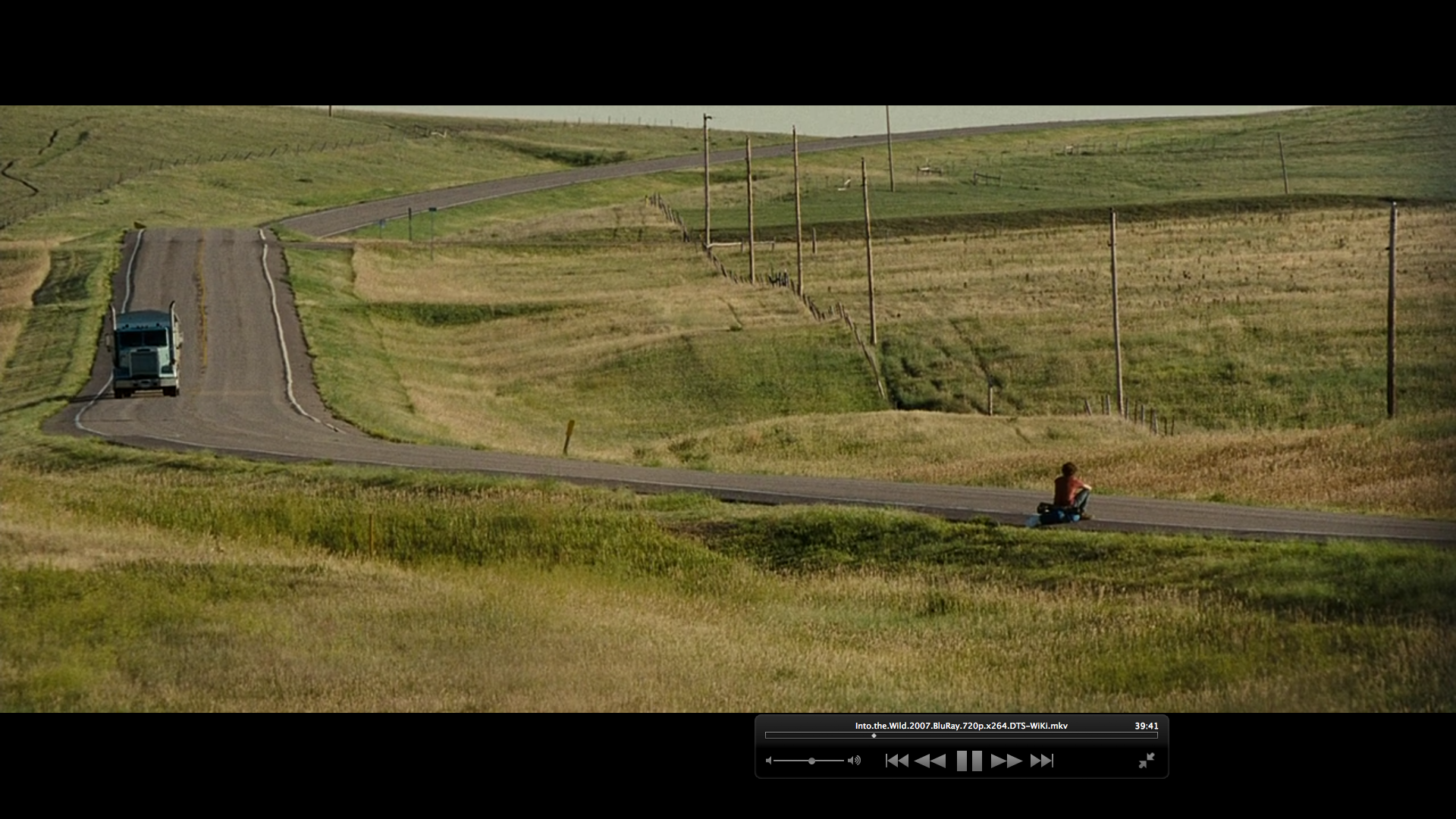
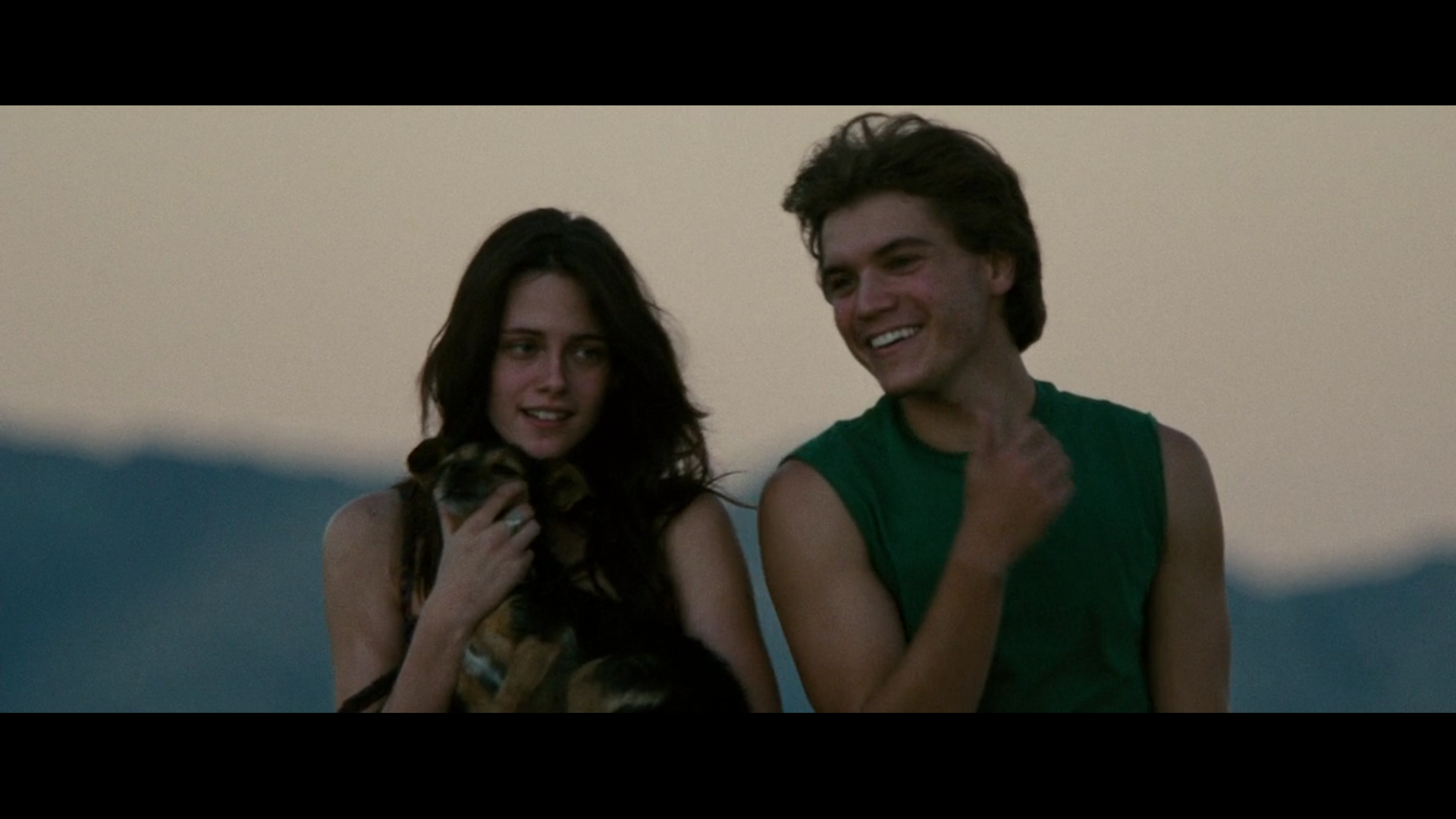
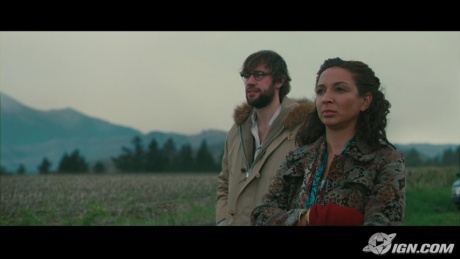
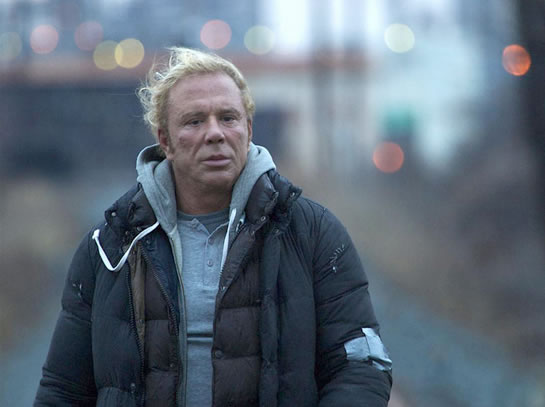
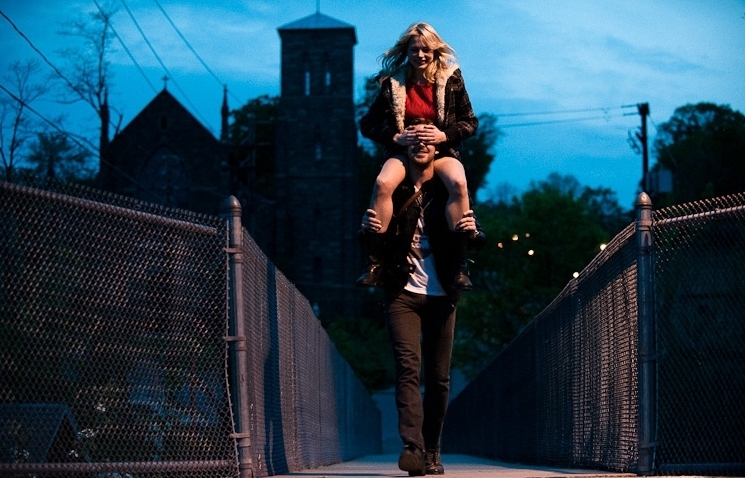
When it came time to think about story influences, I hadn’t. This was one that I just wrote from the gut, and then I looked back and was like, “Oh, I can totally see the DNA of this story.” The only clear influence was Paris, Texas, because Harry Dean Stanton has a show-stopping monologue in that – written by Sam Shepherd, one of my favorite playwrights – that is very similar to the story Jane ultimately tells in West of Her. So that was a huge influence, and really the only one I was aware of.
The monologue in West of Her is a risky move. Why take that risk here?
I find something really electrifying about watching a person process something and tell a story and do it verbally rather than on the page. There’s an element of a high-wire act to it. You’ve gone through something with this person that is uninterrupted. It’s a very powerful, intimate thing. And there aren't enough good parts for women out there. We hear it all the time. So if I’m going to throw out something challenging and exciting, it’s fun to throw it at a woman.
How did this movie change during filming in ways you hadn’t originally intended?
I didn’t set out to write a romance. I set out to write a story of two very flawed people who find a connection, and I sort of consider my influences to be anti-romances. Lost in Translation and Once are two big influences, and I’ve been saying this the whole road. Those are movies that are about deep, intimate connections that are never consummated. And then we cast these two people that had a really strong chemistry, and partially because they are both young, attractive people in the same age range – which is not so much what I wrote in the script – there was an undeniable romantic quality from very early on, and then especially once the improv got into it and you started to see their real friendship developing, you can see that on screen. In the script their first kiss is something like, “She kisses him not passionately, but deeply.” And when we shot that scene they have a very sexy kiss. And I was just like, “Oh no! We made a romance! This is great, but now we have to grapple with the fact that this is not what we were trying to do.”
Did any other external circumstances affect the way you shot West of Her?
We got lucky with weather. The Grand Canyon was the big surprise, weather wise. Of course I wanted that gorgeous sunset, and the picturesque Grand Canyon bathed in golden light. And then we got there, and there was a thunderstorm coming, and I thought “Oh, that sucks.” But then we quickly realized it could work. Having the lightning on the horizon—everybody always asks if that is CGI. Nope! We were just there for a very prototypical thunderstorm. And there’s also metaphorical value for the story in there being a thunderstorm. And we had already captured beautiful sunsets, but there are moments when Ryan is turning and he sees the storm, and he says, “I feel like this is coming towards us.” And it’s like, well, that works. Or the moment when they almost kiss and the lightning strikes, and that works!
Behind the scenes shot from West of Her at the Grand Canyon.
The really big thing that influenced everything and changed everything was the 1880 Town. We were not planning to have a lot of improv in the movie. I had one spot where I thought it might be fun to let them chat, but then we were driving through South Dakota, and we were on the way to our hotel. We were kind of ahead of schedule, and we stopped for a bathroom break at what just looked like a rest stop, and out back there was a recreated civil war village. They were closing up for the night, and we said, “Could we go maybe film a little bit for our movie out there?” And they said that was cool, cause that’s where they shot Dances with Wolves, and they were familiar with it. We grabbed our camera, and they just let us play out there for like two hours.
The story is pretty rigidly written, but at the same time, you realize these people are together for weeks and weeks and we’re only seeing 90 minutes of what they’re doing together. So I said, “Well, you guys met a couple of days ago, and so did your characters, so just walk around and talk to each other, and be yourselves while being the characters.” And that worked really well, and was really exciting, and I felt this sort of – the movie came alive a little. A lot of directors won’t let their cast deviate from the script, but I felt like I wanted something so naturalistic on this. That’s how we found the voices of these characters a little. And then Kelsey would go a little too personal sometimes, and I would have to remind her, “You are Jane.”
The improv thing definitely changed everything, and loosened us all up a lot. That was where we sort of found the fun with it. We found a lot of joy in the movie there.
Have you been surprised at all by the audience response to this film?
Ethan Warren (director), Cameron Bryson (director of photography/producer) and Ryan Caraway (actor) answer questions at the Santa Cruz Film Festival Q&A
I’ve been pleasantly surprised by how personally people are connecting with it. People don’t come up to me and talk about the technical stuff. They come up to me and say, “This made me feel whatever,” or, “This reminded me of this thing in my own life, and now I’m thinking about my own life in a different way.” And it’s happening a lot, and it’s amazingly fulfilling. That’s why you do it. You want to connect with people.
There are certain interpretations of the movie. There is a common fan theory I’ve heard several times that I didn’t anticipate, and I love when people say it, because I love the idea that I could have created something that has a specific interpretation that multiple people click into. It makes you realize that there’s stuff going on with this creative process that we’re not in control of. There are other subconscious interpretations that I didn’t know I was doing, but I can look back now from a distance of years and say I was working out certain issues. I’m surprising myself.

